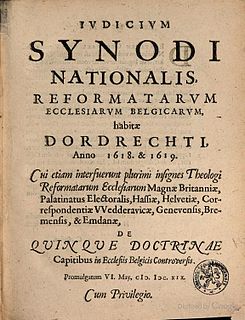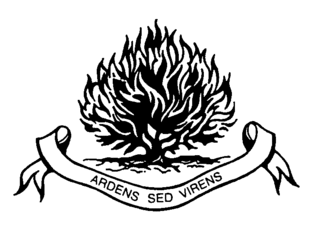
Presbyterianism is a part of the reformed tradition within Protestantism, which traces its origins to Britain, particularly Scotland.
The World Alliance of Reformed Churches (WARC) was a fellowship of more than 200 churches with roots in the 16th-century Reformation, and particularly in the theology of John Calvin. Its headquarters was in Geneva, Switzerland. They are now merged into the World Communion of Reformed Churches.
Igreja Presbiteriana de Moçambique is one of the largest Protestant denominations of Mozambique.
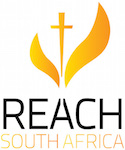
The Reformed Evangelical Anglican Church of South Africa is Christian denomination in South Africa. It was constituted in 1938 as a federation of churches. It appointed its first bishop in 1955. It is an Anglican church and it relates closely to the Sydney Diocese of the Anglican Church of Australia, to which it is similar in that it sees itself as a bastion of the Reformation and particularly of reformed doctrine.
The Sudanese Reformed Presbyterian Churches (SRPC) are a unified body of Protestant Churches in Sudan.

The World Communion of Reformed Churches (WCRC) is the largest association of Reformed churches in the world. It has 233 member denominations in 110 countries, together claiming 100 million people, thus being the third largest Christian communion in the world after the Roman Catholic Church and the Eastern Orthodox Church. This ecumenical Christian body was formed in June 2010 by the union of the World Alliance of Reformed Churches (WARC) and the Reformed Ecumenical Council (REC).
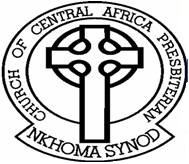
The Church of Central Africa Presbyterian – Nkhoma Synod was founded in 1889 and is one of the major Protestant churches in Malawi. The Church consists of 124 congregations and 1,298 prayer houses and serves 800,000 members. The churches meet every two years in a synod. They have adopted the Belgic Confession, Heidelberg Catechism and Canons of Dort as their doctrinal standards. Along with the General Synod of the CCAP, the Nkhoma Synod is a member of the World Communion of Reformed Churches.
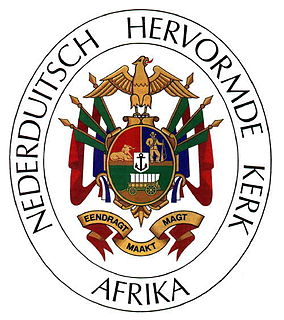
The Dutch Reformed Church in Africa is a Reformed Christian denomination based in South Africa. It also has congregations in Namibia, Botswana, Zambia and Zimbabwe. Along with the Dutch Reformed Church in South Africa (NGK) and the Reformed Churches in South Africa, the NHK is one of the three Dutch Reformed sister churches of South Africa.

The Uniting Presbyterian Church in Southern Africa (UPCSA) was formed and constituted in 1999 as the outcome of the union between the Reformed Presbyterian Church in Southern Africa (RPCSA) and the Presbyterian Church of Southern Africa (PCSA).
The Presbyterian Church of Nigeria is a Presbyterian church in the Federal Republic of Nigeria and subscribes to the Westminster Confession of Faith.

The Reformed Churches in South Africa is a Christian denomination in South Africa that was formed in 1859 in Rustenburg. Members of the church are sometimes referred to as Doppers.
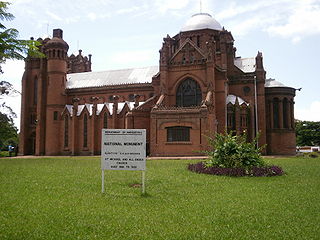
The Church of Central Africa Presbyterian (CCAP) is a Presbyterian denomination. It consists of five synods: one in Zambia, one in Zimbabwe and three in Malawi – Livingstonia Synod in the north of the country, Nkhoma Synod in the centre, and Blantyre Synod in the south.
Christianity is one of the major religions practiced in Zimbabwe. The arrival of Christianity dates back to the 14th century by missionaries such as Robert Moffat of the London Missionary Society (LMS). Christianity is embraced by the majority of the population. It is estimated 85 percent of Zimbabweans claim to be Christians, with approximately 62 percent regularly attending church services. Christian faith plays a very important role in the organization of our society; the bible is regarded as the only source of hope and truth. It is highly esteemed and its writings considered sacred.

The Presbyterian Church in Angola is a federation of theologically orthodox Reformed churches, that was founded in the mid-1980s, adopting the Westminster Confession of Faith as the official Standards.
The Presbyterian Church of Africa was founded in 1898 by Rev. James Mzimba, who broke from the Church of Scotland. He was born in Ngquakai, and his father was a deacon in the Presbyterian Church. Mzimba become a pastor, and was ordained in 1875. He was sent to Scotland to the anniversary of the Free Church of Scotland, but later severed its ties with the denomination. In 1899 he founded his own independent Presbyterian church. He died in 1911. The first Synod was constituted in Alice, Cape Colony. Mzambi had a dispute with the Free Church of Scotland over land and over the use of money. The Presbyterian Church of Africa is a predominantly black church. It was a small group of churches with 2 presbyteries. The church grew steadily. It is one of the oldest independent churches in Africa.
The Reformed Presbyterian Church of Malawi was initiated by mission work of the Free Presbyterian Church of Scotland, and was founded in 1985. There are more than 200 congregations and 7.000 to 10.000 members mainly in rural areas of central and southern Malawi. Since 2006 the Hersteld Hervormde Kerk of the Netherlands Restored Reformed Church supports this denomination.

The Synod of Livingstonia is a synod of the Church of Central Africa Presbyterian. It was founded by missionaries of the Free Church of Scotland in 1875.
The Synod Central Africa is a regional governing body in the Dutch Reformed Church in South Africa in Zimbabwe. In 1895 3 congregations were established in what was then known as Rhodesia. The number of congregations increased rapidly, theses was part of the Cape Synod, later the Free State Synod and the Transvaal Synod. Finally the Dutch Reformed Church - Synod Central Africa become autonomous in 1957. It has 16 congregations, 41 house fellowships and 2,600 members. Official languages are English and Afrikaans. The Apostles Creed, Athanasian Creed, Canons of Dort, Heidelberg Catechism, Belgic Confession is generally accepted standards.

The Church of Central Africa Presbyterian – Blantyre Synod is a synod of the Church of Central Africa Presbyterian, located in southern Malawi. It was founded by Church of Scotland missionaries in 1876.




